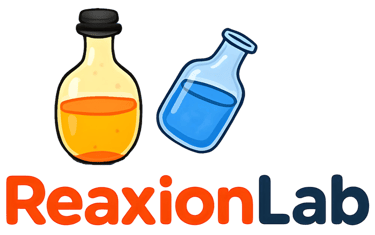Insights Collective
The Insights Collective is dedicated for collecting scientifically valid and ethically guided research data. It serves as a neutral platform where individuals can voluntarily contribute to empirical studies designed to advance understanding across diverse scientific fields. Each survey is curated to meet rigorous academic and methodological standards, ensuring that the data collected remains accurate, relevant, and reproducible.
This section is not intended for political, social, religious, or demographic inquiries that could introduce bias or compromise neutrality. We explicitly do not collect or store any information related to political opinions, religious beliefs, ethnic or national origins, gender identity, or similar personal characteristics. Our objective is to provide a trustworthy space strictly focused on scientific inquiry, data integrity, and research transparency.
All research activities conducted through this section adhere to ethical review standards and follow established principles for participant confidentiality and data security. Contributors are invited to participate with the confidence that their input supports genuine scientific discovery and collective advancement, uncompromised by ideological or societal influences.
Explainable AI in Predictive Chemistry and Psychology: A Survey of Trust, Accessibility, and Ethical Integration
This survey investigates the current state of predictive AI adoption at the meeting point of chemistry and psychology, focusing on three critical dimensions: accessibility, trust, and ethical compliance. The research addresses a fundamental problem facing these disciplines: while AI-powered tools for drug modeling, neurochemical prediction, and mental health screening show transformative potential, their effective integration depends on practitioners' confidence in their reliability, explainability, and ethical governance. By examining how researchers and professionals across different experience levels perceive and interact with these tools, this study aims to identify gaps between AI capabilities and real-world adoption, ultimately informing best practices for human-AI collaboration that balances innovation with scientific rigor and ethical responsibility.
The research survey officially has officially begun on 28th October 2025 and ReaxionLab holds all the rights to the data collected through this survey and the copyright to all the questions asked in this survey. No part of this survey may be reproduced or copied by either the individuals associated with ReaxionLab or any person or organization outside without a formal written authorization from ReaxionLab.
This survey does not collect any personally identifiable information from the participants.
ReaxionLab does not promote or promise any reward (monetary or otherwise) to the participants and the participation in this survey is entirely voluntary.
C–H Activation and Functionalization represents a highly cited area in synthetic chemistry, generating approximately 20,000–30,000 citations annually. To further this significant field of research, this report serves as a practical quick-reference guide for researchers planning C–H functionalization reactions in the laboratory. It provides detailed, ready-to-implement protocols for three versatile methodologies: iridium-catalyzed borylation for creating predictable C–B intermediates, continuous-flow aerobic olefination of indoles with dramatically reduced reaction times, and mild photoredox-catalyzed acylation under visible light. The guide also addresses critical practical considerations including inert atmosphere requirements, specialized equipment setup (flow reactors, photoreactors), and emerging green chemistry alternatives for sustainable reaction design, making it an essential bench-side resource for planning and optimizing C–H activation strategies in modern synthetic research.
C–H Activation and Functionalization: Methodologies, Laboratory Implementation, and Sustainability Considerations
Reports
Address
Agartala, TR-IN 799003
Contact Us
© 2025 ReaxionLab - All Rights Reserved.
